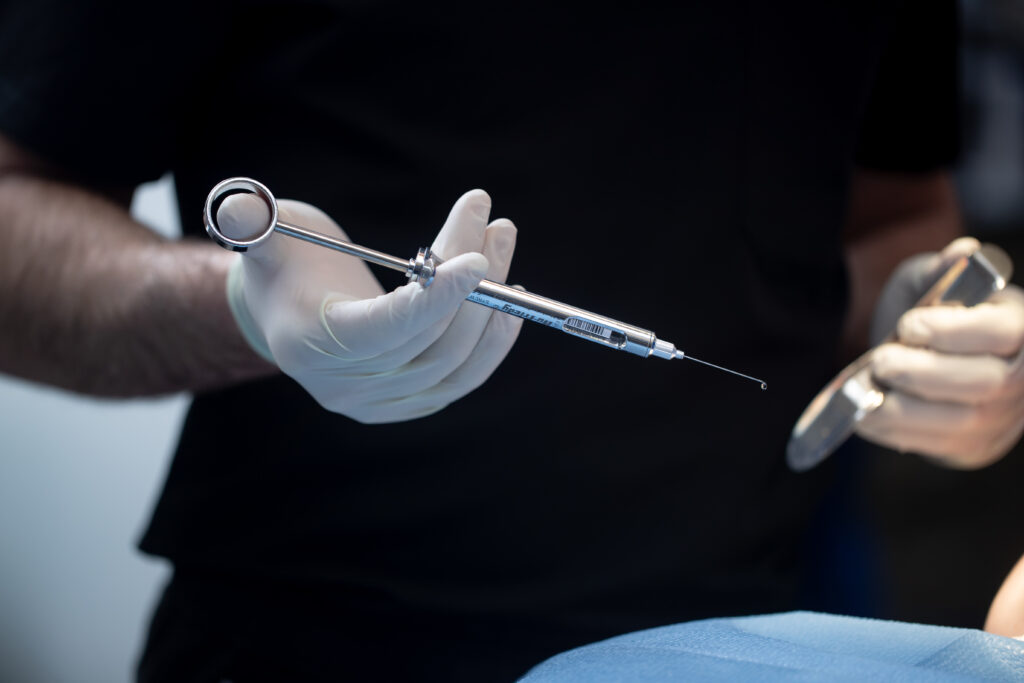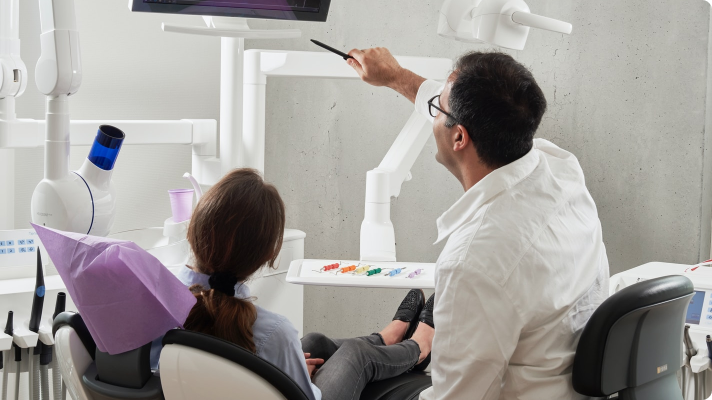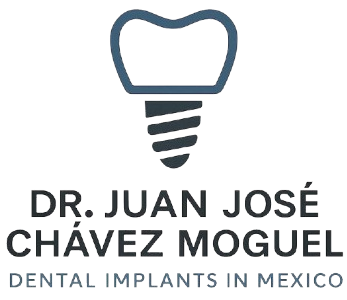Pre-Surgery Patient Guide
Important Instructions Before Your Procedure
Below you will find a series of essential recommendations that must be followed carefully before the scheduled day of your dental procedure. These guidelines are designed to help ensure a safe and successful treatment.
If you have chosen intravenous (IV) or inhalation sedation (nitrous oxide):
Do not consume any food or beverages, including water, for at least 8 hours before your scheduled surgery time. This is vital to prevent complications during the procedure.
Only take your essential daily medications with a small sip of water, just enough to swallow them comfortably. The same applies to any medication our team has specifically instructed you to take before the procedure.
Important regarding IV sedation:
For your safety, you will not be allowed to drive after the procedure if you receive IV sedation. Please make arrangements for safe transportation home, ideally accompanied by a responsible adult. (We will provide you with a personal driver).
Medical conditions prior to surgery:
If you develop symptoms such as severe nasal congestion, persistent cough, fever, or any signs of respiratory infection in the days leading up to your appointment, it is crucial that you inform our clinic immediately. In such cases, we may recommend rescheduling your surgery until you are in optimal health.
If your procedure involves local anesthesia only:
You may eat a light meal before your appointment and do not need to be accompanied. However, it is still advisable to consider how you might feel after the surgery and plan accordingly.
We are here to answer any additional questions you may have, and our team is fully committed to providing the best possible care throughout every stage of your dental treatment
Preoperative Information and Recommendations
This document has been prepared to provide you with a clear and practical guide prior to your dental surgical procedure. Please read this information carefully and feel free to contact our team if you have any unanswered questions.
Understanding the Procedure
During your consultation, the doctor explained in detail the type of surgical intervention to be performed, along with the available treatment alternatives. If you need further clarification about the scheduled procedure or would like to review other possible options, please contact us before signing your surgical consent form.
About Intravenous Sedation
If sedation has been recommended, the medication will be administered intravenously through your arm. With the technique used in our clinic, you may remain slightly aware of the procedure, but you will feel relaxed, possibly drowsy, and with the support of local anesthesia, you should not experience significant pain during the surgery.
In most cases, our patients do not remember the procedure. After surgery, it is common to experience discomfort for a period of two to four days, although the intensity may vary from person to person.
Pain and Swelling Management
You will be provided with strong pain medication to help manage the first few days of recovery. If you find you do not need the full dose, you may take half a dose every 4 to 6 hours or use an over-the-counter pain reliever at the same interval.
Some swelling is also expected, which usually starts to subside after the third day. In some cases, complications such as infections may occur, which typically present with pressure or pus accumulation in the treated area. This may require an in-clinic drainage procedure. In rare situations, hospitalization may be necessary for intravenous antibiotics and further care.
Postoperative Care and Risk of Complications
We understand your surgery involves your mouth and recognize the importance of maintaining proper nutrition. Food debris or bacteria may irritate the extraction site, potentially leading to a condition known as “dry socket.” Smoking or the use of oral contraceptives can increase the risk of this complication.
If dry socket occurs, it may require multiple visits to apply medicated dressings in the surgical cavities to alleviate pain and promote healing. For this reason, we recommend being available for follow-up care for at least 10 days after your procedure.
Warning Signs
If by the third day you experience increased pain, swelling, or develop a fever, please contact us immediately. Other common side effects include jaw stiffness, lip irritation, facial bruising, and mild bleeding.
Additional Information
You will receive a detailed postoperative instruction sheet covering most of the necessary care and frequently asked questions. If you do not find the information you need there, do not hesitate to reach out. If you are taking antibiotics and also use oral contraceptives, please be aware that the effectiveness of the contraceptives may be temporarily reduced. Additional protection is recommended.
Our goal is to ensure that your surgical experience is as safe, comfortable, and efficient as possible.
Important Notice for the Patient
This document is intended to provide you with clear guidance prior to your dental surgical intervention. We recommend reading it carefully and contacting us if you have questions or need further information.

Details About Your Treatment
During your initial appointment, the specialist explained the procedure to be performed and the various available alternatives. If you have any remaining concerns about the surgery or your treatment options, we invite you to discuss them with us before signing the informed consent form.
Sedation Considerations
If intravenous sedation is administered, it will be applied via an injection into your arm. This technique allows you to remain calm and relaxed throughout the procedure. Thanks to local anesthesia, discomfort will be minimal or nonexistent. In most cases, patients have little to no memory of the procedure.
Recovery and Pain Control
It is normal to experience discomfort for several days following surgery. You will be given a prescription to manage the pain. If you don’t need the full dosage, you may lower it or alternate with over-the-counter pain relievers.
Swelling is also expected and tends to gradually decrease after the third day. If complications arise, such as infections or fluid accumulation, additional in-clinic care may be required—or, in rare cases, hospitalization.
Caring for the Treated Area
Maintaining a proper diet is essential, even if your surgery involved your oral cavity. Some patients may develop a condition known as dry socket, where the extraction site becomes irritated. Smokers and users of oral contraceptives are at higher risk.
This condition may require repeated visits to apply soothing treatments. That’s why it’s important to remain available for follow-up appointments during the first 10 days after your procedure.
Monitoring Symptoms
IPay attention to any unusual signs. If you experience fever, increased pain, or swelling after 72 hours, please contact us right away. Other minor effects may include jaw stiffness or light bleeding.
Final Recommendations
We will provide you with a postoperative instruction sheet that outlines the basic care steps after your surgery. If you’re taking antibiotics along with oral contraceptives, please be aware that their effectiveness may be reduced, and additional protection is recommended.
We are committed to ensuring your procedure is smooth and your recovery is fast, comfortable, and safe.

